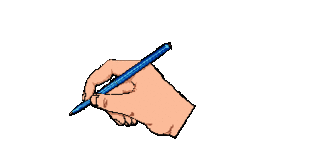Update on the Mexican Comics Industry or Me and My Big Mouth
Oops. Did I say that Mexico STILL had a comics industry? Sorry. Mea culpa. I spoke too soon. It appears that LIKE the Philippines, Mexico too had lost (or is now losing) a great industry and the circumstances are not at all unfamiliar with what's happening in our country either. And guess what? Its comics industry is also controlled by a family monopoly akin to the Roceses: the Flores brothers! Take a look at this article from: www.theonion.com/content/node/20670:
"Before he embarks on a stirring defense of contemporary Mexican "historietas"—the crude and salacious remnants of what was once the world's most bustling comics industry—Daniel Raeburn wants readers to know something up front.
These are bad comic books, deeply cynical and outrageously debased, balancing out the worst in sex-and-death titillation with an even more tasteless bent toward Catholic morality.
As the wryly optimistic Raeburn notes, "If we measure a book's potential by the room for improvement within it, then these books contain more potential than any book on earth."
The fourth in a series of self-published comics critiques called The Imp (the three previous installments contained close readings of Daniel Clowes, Jack Chick, and Chris Ware, respectively), Historietas Perversas works within a pilloried format of its own (the 'zine) and realizes every scrap of its potential.
Loose but not undisciplined, Raeburn's free-form essay comfortably mingles the personal with the academic, complementing a scrupulous critical analysis of historietas with colorful anecdotes and sidebars, closing with an investigative detour south of the border.
He can only tread lightly in trying to defend the indefensible, but the lurid color illustrations from comics such as Almas Perversas (Perverse Souls) and Serpiente Desplumada (The Snake Without Feathers) hint at their addictive trashiness. In the opening pages, Raeburn discusses the current decline of Mexican comics, which once boasted an astonishing circulation of 200 million copies a month, but that number fell precipitously when the market opened for slick competitors such as American superhero comics and Japanese manga.
The industry's response was transparently cynical: Keep the morality of traditional historietas, but push the sex and violence to unprecedented extremes, making for a potent-but-queasy concoction of sleaze, hypocrisy, and gross exploitation.
A typical "ghetto libretto" sends a doe-eyed, full-figured innocent from the country into "El Monstruo" (Mexico City), where she's quickly deflowered by macho rapists and librettos are less pornography than smut, which is "a hundred times dirtier than pornography." sent careening into a world of drugs, prostitution, and bloody retribution.
As Raeburn puts it, ghettoNevertheless, he sees potential in the certain grip of the melodramatic stories and the unrecognized talent of some of the artists, whose abilities are obscured by the need to crank out an 80-page issue every week.
Much of the problem stems from the fact that Mexican comics are monopolized by the Flores brothers, who own three imprints (EJEA, Mango, and Toukán) and continue to find new ways to sidestep strict censorship codes and screw their artists out of royalties.
Raeburn cops to his ironic distance from these sublimely unironic comic books, yet he refuses to concede that ghetto librettos are somehow beyond discussion or beneath contempt, even as he bristles at their unsavory content. In his uncommonly attractive and well-considered 'zine, featuring a hilariously splashy original cover by Flores artists Oscar Bazaldúa and José Silva, Raeburn finds that historietas are too ripe to be ignored, both as cultural phenomena and as the guiltiest of guilty pleasures." (Emphasis Mine)

1 Comments:
Hi. Interesting blog. If you will continue your research you will also discover that in Mexico, there are now only two kinds of comics companies all owned by the monopoly of the Flores brothers. The first company is publishing licensed reprints of American comics mainly DC Comics. They are expensive and mostly marketed to the upper classes in Mexico. They do not have wide circulation.
The second company has a bigger and wider circulation and its market are the lower class in Mexico. Its comics are sex oriented and pronographic.
Those are the kinds of comics in Mexico right now. All monopolized by the Flores brothers.
Seems to me this is a common thing in poor countries nowadays. Beggars can't be choosers.
Or can they?
6:32 PM
Post a Comment
<< Home